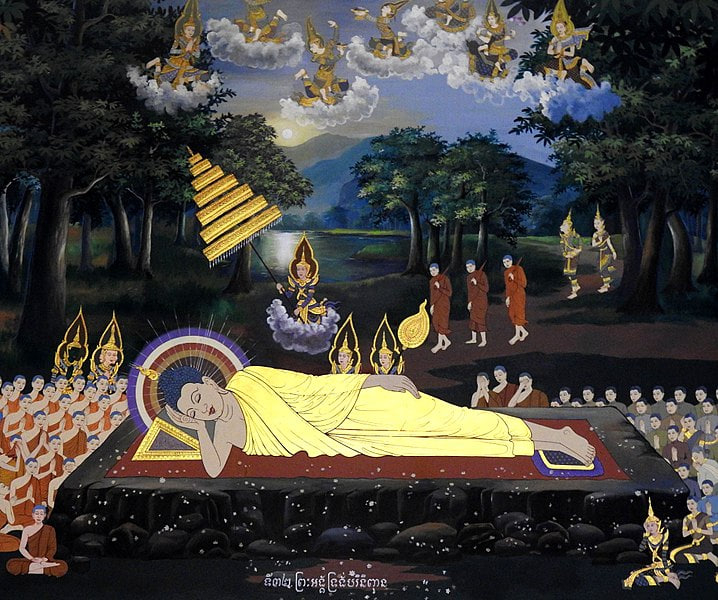Nirvana

Nirvana occupies a profound role in Buddhist teachings, signifying the paramount objective of spiritual realization and emancipation from the cycle of suffering. It is frequently portrayed as a state characterized by consummate serenity, tranquility, and enlightenment. The Buddha attained Nirvana on the night of his culture, liberating himself entirely from the Three Poisons. His subsequent teachings were all directed toward assisting others in achieving that identical freedom.
Nirvana encompasses the dissolution of the ego's illusory sense of self and the relinquishment of desires that ensnare individuals in worldly existence. It signifies liberation from the repetitive cycle of attachment and craving.
Nirvana symbolizes the transcendence of dichotomies and dualities, spanning realms like pleasure and pain, life and death, and self and others. It signifies a state that exists beyond the confines of conventional conceptualization.
Nirvana often intertwines with profound mindfulness and heightened awareness. It encompasses comprehending the genuine nature of reality and the interconnectedness of all phenomena. Nirvana isn't confined to philosophical contemplation; it's a firsthand experience attainable through dedicated practice, meditation, virtuous living, and the nurturing of wisdom.
Pursuing Nirvana is a fundamental aspiration for Buddhists, directing their endeavors toward liberation from the cycle of suffering and attaining supreme enlightenment. It epitomizes the culmination of the path laid out by the Buddha, encompassing the Four Noble Truths, the Noble Eightfold Path, and a multitude of teachings designed to guide individuals toward a state of enduring serenity and liberation.










